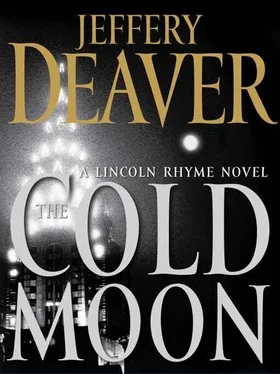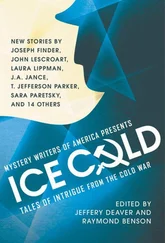
In doing his research into watchmaking, so that he could be a credible revenge killer, Charles Hale had learned of the concept of "complications."
A complication is a function in a watch or clock other than telling the time of day. For instance, those small dials that dot the front of expensive timepieces, giving information like day of the week and date and time in different locations, and repeater functions (chimes sounding at certain intervals). Watchmakers have always enjoyed the challenge of getting as many complications into their watches as possible. A typical one is the Patek Philippe Star Calibre 2000, a watch featuring more than one thousand parts. Its complications offer the owner such information as the times of sunrise and sunset, a perpetual calendar, the day, date and month, the season, moon phases, lunar orbit and power reserve indicators for both the watch's movement and the several chimes inside.
The trouble with complications, though, is that they're just that. They tend to distract from the ultimate purpose of a watch: telling time. Breitling makes superb timepieces but some of the Professional and Navitimer models have so many dials, hands and side functions, like chronographs (the technical term for stopwatches) and logarithmic slide rules, that it's easy to miss the big hand and the little hand.
But complications were exactly what Charles Hale needed for his plan here in New York City, distractions to lead the police away from what he was really about. Because there was a good chance that Lincoln Rhyme and his team would find out that he was no longer in custody and that he wasn't really Gerald Duncan, they'd realize he had something else in mind other than getting even with a crooked cop.
So he needed yet another complication to keep the police focused elsewhere.
Hale's cell phone vibrated. He glanced at the text message, which was from Charlotte Allerton. Special Report on TV: Museum closed. Police searching for you there.
He put the phone back in his pocket.
And enjoyed a moment of keen, almost sexual, satisfaction.
The message told him that while Rhyme had tipped to the fact that he wasn't who he seemed to be, the police were still missing the time of day and focusing on the complication of the Metropolitan Museum. He was pointing the police toward what appeared to be a plan to steal the famous Delphic Mechanism. At the church he'd planted brochures on the horologic exhibits in Boston and Tampa. He'd rhapsodized on the device to Vincent Reynolds. He'd hinted to the antiques dealer about his obsession with old timepieces, mentioning the Mechanism specifically, and that he was aware of the exhibit at the Met. The small fire he'd set at the National Institute of Standards and Technology in Brooklyn would make them think he was going to somehow reset the country's cesium clock, disabling the Met's time-security system, and steal the Mechanism.
A plot to steal the device seemed to be just the clever, subtle deduction for the cops to seize as Hale's real motive. Officers would spend hours scouring the museum and nearby Central Park looking for him and examining the canvas bag he'd left. It contained four hollowed-out books, inside of which were two bags of baking soda, a small scanner and, of course, a clock-a cheap digital alarm. None of them meant anything but each was sure to keep the police busy for hours.
The complications in his plan were as elegant, if not as numerous, as those in what was reportedly the world's most elaborate wristwatch, one made by Gerald Genta.
But at the moment Hale was nowhere near the museum, which he'd left a half hour ago. Not long after he'd entered and checked the bag, he'd walked into a restroom stall, then taken off his coat, revealing an army uniform, rank of major. He'd donned glasses and a military-style hat-hidden in a false pocket in his coat-and had left the museum quickly. He was presently in downtown Manhattan, slowly making his way through the security line leading into the New York office of the Department of Housing and Urban Development.
In a short time a number of soldiers and their families would attend a ceremony in their honor, hosted by the city and the U.S. Departments of Defense and State, in the HUD building. Officials would be greeting soldiers recently returned from foreign conflicts and their families, giving them letters of commendation for their service in recent world conflicts and thanking them for reenlisting. Following the ceremonies, and the requisite photo ops and trite statements to the press, the guests would leave and the generals and other government officials would reconvene to discuss future efforts to spread democracy to other places in the world.
These government officials, as well as the soldiers, their families and any members of the press who happened to be present, were the real point of Charles Hale's mission in New York.
He had been hired for the simple purpose of killing as many of them as he could.
With husky, ever-smiling Bob driving, Lucy Richter sat in the car as they made their way past the reviewing stand outside the Housing and Urban Development building, where the parade was just winding down.
Her hand on her husband's muscular thigh, Lucy was silent.
The Honda nosed through the heavy traffic, Bob making casual conversation, talking about the party tonight. Lucy responded halfheartedly. She'd grown troubled once again about the Big Conflict-what she'd confessed to Kathryn Dance. Should she go through with the reenlistment or not?
Self-interrogation…
When she'd agreed a month earlier; was she being honest or being deceptive with herself?
Looking for the things Agent Dance told her: anger, depression…Am I lying?
She tried to put the debate out of her head.
They were close to the HUD building now and across the street she saw protesters. They were against the various foreign conflicts America was involved in. Her friends and fellow soldiers overseas were pissed off at anybody who protested but, curiously, Lucy didn't see it that way. She believed the very fact that these people were free to demonstrate and were not in jail validated what she was doing.
The couple drew closer to the checkpoint at the intersection near the HUD building. Two soldiers stepped forward to check their IDs and to look in the trunk.
Lucy stiffened.
"What?" her husband asked.
"Look," she said.
He glanced down. Her right hand was on her hip, where she wore her sidearm when on duty.
"Going for the fast draw?" Bob joked.
"Instinct. At checkpoints." She laughed. But it was a humorless sound.
Bitter fog…
Bob nodded at the soldiers and smiled to his wife. "I think we're pretty safe. Not like we're in Baghdad or Kabul."
Lucy squeezed his hand and they proceeded to the parking lot reserved for the honorees.
Charles Hale was not completely apolitical. He had some general opinions about democracy versus theocracy versus communism versus fascism. But he knew his views amounted to the same pedestrian positions offered by listeners calling in to Rush Limbaugh or NPR radio, nothing particularly radical or articulate. So last October when Charlotte and Bud Allerton hired him for the job of "sending a message" about big government and wrong-minded American intervention in "heathen" foreign nations, Hale had yawned mentally.
But he was intrigued by the challenge.
"We've talked to six people and nobody'll take the job," Bud Allerton told him. "It's next to impossible."
Charles Vespasian Hale liked that word. One wasn't bored when taking on the impossible. It was like "invulnerable."
Читать дальше













